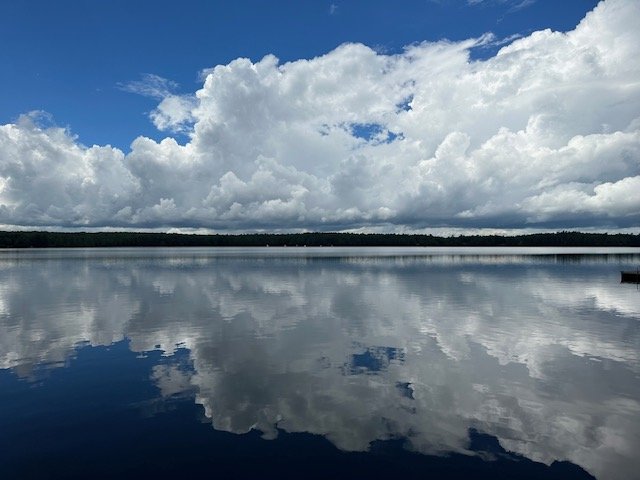
nutrient reduction plan

the best way to improve lake quality is to reduce the amount of nutrients that enter the lake
There are many discussions about reducing the external input of nutrients from stormwater, lawn runoff, fertilizer use reduction and proper septic system maintenance. However, another input of nutrients to the lakes each year is the internal loading caused by the annual dying off of aquatic vegetation (i.e., lily pads, water shield, etc.). When this vegetation sinks to the bottom of the lake in the fall, its decomposition adds to the nutrients each year. The TLWQC decided that one efficient way to reduce the annual nutrient loading to the lakes is to harvest the vegetation before it dies off. In September, Northern Lights was retained to harvest lily pads in both the little and big lakes. One day was spent on each lake and we targeted the areas with the most dense collection of lily pads. The harvesting prevented all of that organic matter from decaying and forming more muck at the bottom of the lakes.
While the muck is naturally occurring, it builds up over time increasing the percentage of carbon and nutrients in the lake and providing fertile ground for the increased growth of aquatic plant life. By reducing the muck, we are slowly increasing the lake’s health. The TLWQC is planning on repeating this effort again in 2025.
2024 Septic System Inspection Program
Along the shorelines and throughout the watershed that feeds Twin Lakes there are hundreds of septic systems. It is important that septic systems are in good working order to ensure that waste is not getting into the groundwater and migrating to the lakes, increasing the nutrient loading. In an effort to educate homeowners and encourage the inspection of septic systems, TLWQC organized an inspection program in October in conjunction with M&S Septic. We coordinated a discount program to encourage septic systems inspections and pump outs. Based on that effort the following was the outcome:
21 lake residents contacted M&S; 5 had pump outs last year, so no action was necessary
16 septic systems were inspected and pumped out
2 of these systems failed and we are expecting that they will be replaced in the short-term
Some of the participation was also due to a similar program that the Stewards of Twin Lakes organized, so it is great that we are trying to work together on common causes. The inspections are private and TLWQC does not get information on which tanks failed, but it is great that we had strong participation, and the inspections were able to identify possible sources of nutrients. It was encouraging that during a conversation with M&S, they alone completed over 80 inspections/repairs at properties throughout the Twin Lakes watershed in 2024, so even without the program, our neighbors are typically being vigilant. The eventual elimination of these potential sources will likely further improve the health of the lakes.
Some additional sources of information on nutrient sources are linked below. The below information is adapted from publications produced by the Pennsylvania Association of Conservation Districts, Inc. The objective of the series is to provide watershed residents with a greater understanding of environmental cause-and-effect relationships and what actions can be taken to protect Pennsylvania's lakes and other waterways.
For other publications in the Lake Notes series visit the PACD website or contact the Pennsylvania Association of Conservation Districts, Inc. at 4999 Jonestown Road, Suite 203, Harrisburg, PA 17109 (717) 545-8878 or your county conservation district.
For additional information, visit the Pennsylvania Department of Environmental Protections website at www.dep.state.pa.us. Go to: Wastewater Management (Subject) where you will find numerous resources. You may also e-mail your inquiries to: www.askdep@dep.state.pa.us
ways to reduce nutrients in the lakes
-

home & yard pollution control
Every home in the watershed can impact lake quality.
-

Septic Systems
Their function, operation, and maintenance are so important to maintaining a health lake.
-

Canada Geese
Our Friends or Enemies?
-

Riparian Buffers
Learn more on how riparian buffers protect our lakes .